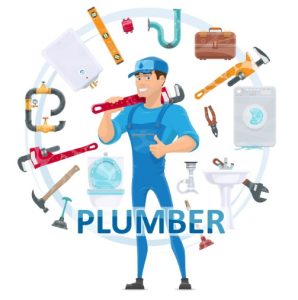 For homeowners across Arizona, plumbing issues can range from minor inconveniences to major emergencies. Understanding which problems you can tackle yourself and which require professional intervention can save you time, money, and unnecessary stress. As local plumbing experts point out, certain tasks are suitable for DIY, while others demand specialized knowledge and tools. Recognizing this distinction is crucial for maintaining your home’s plumbing system and avoiding costly repairs down the road.
For homeowners across Arizona, plumbing issues can range from minor inconveniences to major emergencies. Understanding which problems you can tackle yourself and which require professional intervention can save you time, money, and unnecessary stress. As local plumbing experts point out, certain tasks are suitable for DIY, while others demand specialized knowledge and tools. Recognizing this distinction is crucial for maintaining your home’s plumbing system and avoiding costly repairs down the road.
Replacing toilet seats, addressing minor clogs with a plunger, and installing new showerheads are all manageable tasks for the average homeowner with basic tools and a bit of patience. These simple fixes can often be completed in under an hour and require minimal technical knowledge. However, certain warning signs should never be ignored, including persistent low water pressure, sewer backups, unusual water bills, or any issues involving main plumbing lines. These symptoms typically indicate more serious problems that require professional diagnosis and repair.
The DIY approach to plumbing can be both satisfying and cost-effective when applied to appropriate situations. For instance, a wobbly toilet seat can be fixed with just a screwdriver and a few minutes of your time. Similarly, slow-draining sinks can often be resolved with a plunger or a simple mixture of baking soda and vinegar, followed by hot water. When installing a new showerhead, most homeowners need only a wrench, some plumber’s tape, and basic instructions to complete the job successfully.
However, professionals caution against tackling more complex issues that could potentially worsen if improperly handled. “You should call a plumber when you see things like low water pressure, sewer waste backing up into showers, high water bills that are outside of the norm, moving plumbing lines, fixing leaks in plumbing lines,” advises one local plumbing expert. These situations often indicate underlying problems that require specialized equipment and expertise to properly diagnose and fix. Attempting these repairs without proper knowledge could lead to more extensive damage and higher repair costs.
Preventative maintenance remains the most effective strategy for avoiding common plumbing headaches. Despite marketing claims, so-called “flushable” wipes represent one of the most frequent causes of serious plumbing issues. “Even though the packages say flushable on them, it is not recommended to flush them,” warns a local plumber. “They typically end up clogging up your sewer lines and then waste ends up backing up into your home until you get it cleaned out.” This simple awareness can save homeowners from expensive emergency service calls and the unpleasant experience of sewage backups.
Another crucial preventative measure, particularly relevant to Arizona residents, involves addressing the region’s notoriously hard water. “Hard water is big here in Arizona and all homes should look into having a water softener and filtration system added,” recommends the same plumbing professional. These systems not only protect your pipes from mineral buildup but also “extend the life of your appliances and fixtures.” While representing an upfront investment, water treatment systems can provide significant long-term savings by preventing premature deterioration of your home’s plumbing infrastructure.
Regular home inspection routines can also catch potential problems before they escalate into emergencies. Taking a few minutes each month to check under sinks for leaks, examine exposed pipes for corrosion, and monitor water pressure can identify issues in their early stages. Pay attention to unusual sounds from your plumbing system, such as banging pipes or persistent running toilet sounds, as these often indicate developing problems that merit investigation.
Additionally, educating household members about proper usage of plumbing fixtures can prevent many common issues. Establishing clear guidelines about what should never go down drains or toilets—including grease, coffee grounds, hair, and hygiene products—can prevent many clogs before they form. During colder months, even in Arizona, taking precautions against freezing pipes in exposed areas can prevent burst pipes, one of the most destructive and expensive plumbing emergencies. These simple preventative practices require minimal effort but offer substantial protection for your home’s plumbing system.
